Fulbright Scholars Demand That the Program Speak Out on Palestine
The program has been silent during the war on Gaza, while its parent institution continues to fund Israel’s ongoing assault.
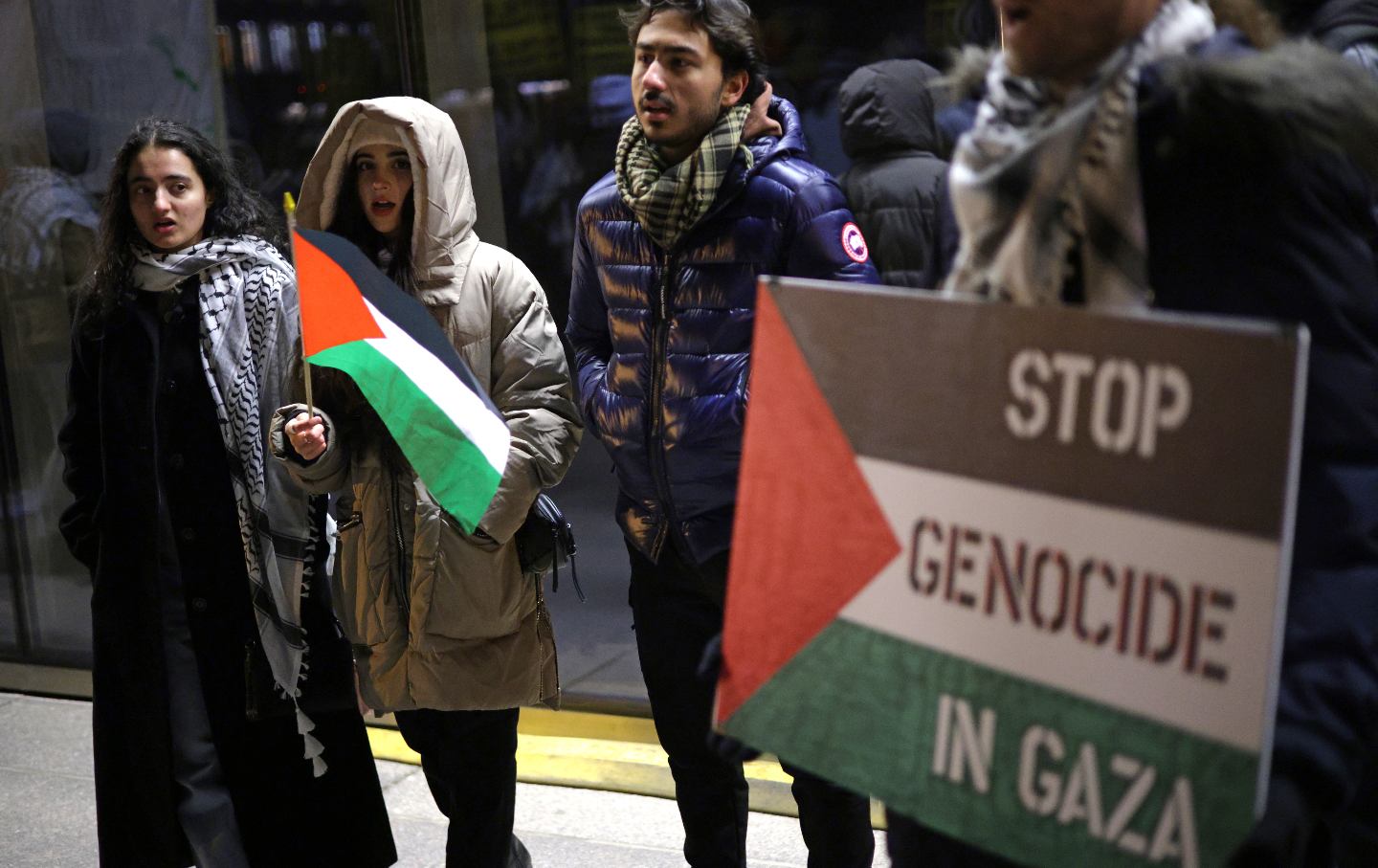
Activists gather outside the US. State Department for a pro-Palestine rally.
(Alex Wong / Getty)
When Hasan Ayoub, an assistant professor at An-Najah University in the West Bank, was named a 2023-2024 Fulbright visiting scholar, he felt extremely fortunate. “People still look at [the Fulbright Program] as one of the most important chances that you can get as a scholar,” said Ayoub. He went to the University of Illinois–Urbana Champaign, excited to finish his research project and to visit a new part of the country.
Fulbright, an academic exchange program that sends American scholars abroad and brings international scholars to the US to foster mutual understanding and lasting connections between academics and host communities, has gained a reputation of international prestige since its inception in 1946.
The program’s awards are one of the highest honors a scholar can receive. But less than a month after Ayoub’s arrival, Israel began its assault on Gaza and carried out additional attacks in the West Bank, where Ayoub’s family lives. He worried for his two sons and daughter, and cut his scholarship short to return home to Nablus in January.
“The Fulbright Program is administered and run by the American government…. They were part of the assault, of [the] genocide against my own people,” he said. “It was not easy at all to live with…. This was at the heart of my decision to just cut my scholarship and go back home, because I couldn’t take it anymore.”
Despite taking steps to support Afghan Fulbright scholars after the Taliban’s takeover in 2021—including introducing an act to Congress to help grant former Afghan Fulbright scholars passage to the United States—and condemning Russia’s invasion of Ukraine in 2022, the program has yet to acknowledge the ongoing genocide in Gaza. “As we watch the images from Ukraine—children huddled in subways, destroyed buildings, and attacking helicopters—we must send resources where they are needed,” John Bader, executive director of the Fulbright Association, wrote in the Program’s Ukraine statement in 2022.
Though a State Department spokesperson wrote to The Nation in June that they were continuing “to monitor the on-the-ground situation, and provid[ing] ongoing support to Fulbright Program students and scholars from Israel and the Palestinian Territories who are currently on exchanges in the United States,” Ayoub said he felt abandoned by the program after Israel’s assault on Gaza began. “I didn’t have any kind of support, or someone to talk to.”
Ayoub had been hoping for communication or a consultation with someone in the program. However, his first communication with the program regarding the violence at home, Ayoub said, came when he e-mailed program representatives to let them know of his decision to return to Nablus.
This experience held true for many. Though one Palestinian Fulbright scholar from the West Bank, who wished to remain anonymous because of immigration concerns, said that program administrators did send e-mails to check in on him and his family, two other Palestinian Fulbright Scholars said that they were also not contacted by the program. The two scholars, who also wished to remain anonymous citing safety concerns, said they were disappointed with the program’s lack of acknowledgment of Israel’s violence in Gaza.
The US Fulbright Scholar Program to the West Bank was temporarily suspended, according to the State Department spokesperson, but the program plans to continue its Foreign Scholars program for Palestinians during the 2024–25 academic year, bringing Palestinian scholars from Gaza, the West Bank, and Jerusalem to the United States to build “mutual understanding between nations” and improve “lives around the world.”
Yet the US State Department—the Fulbright Program’s parent institution—continues to fund Israel’s ongoing assault on Gaza, which has led to the destruction and shuttering of several universities in Gaza with Fulbright alumni, including Al-Quds Open University. Ayoub noted that his university, a Fulbright host institution, was raided by Israeli soldiers in January 2024 where they detained 25 students for protesting tuition rates.
Therese Saliba, a 1995–96 Fulbright Scholar to the West Bank who taught at Bethlehem University, told The Nation that the Fulbright program appears to be constrained by the “dictates of [US] foreign policy and Israeli policy,” an assessment echoed by several other Fulbright scholars to the West Bank. Movement between the West Bank and Gaza was limited by Israeli restrictions, according to Saliba—a situation that has continued to this day. During her time at Bethlehem University, she said students who were from Gaza “became totally cut off from their families” as a result of Israel’s travel policies.
“Though there were helpful people in the Fulbright office, they couldn’t help us get around these Israeli-imposed restrictions,” Saliba wrote. “The deference to Israel surprised me even back then.”
In 2008, the Fulbright Program withdrew scholarships to seven Palestinian Fulbright scholars because Israel did not allow the scholars to leave Gaza. The program only re-awarded the scholarships after considerable public pressure.
One of the Palestinian Fulbright scholars who wished to remain anonymous said that the program invited her to write about her experiences in the West Bank for their Scholar Blog, but that they did not publish her piece, which referenced the Israeli occupation and Palestine. “They don’t use the word ‘Palestine,’” she said. Though the program, like the State Department, does not acknowledge Palestine as a nation, it has funded several Palestinian scholars’ research projects about the question of Palestine, including Ayoub’s research on Black solidarity with the Palestinian nationalism movement.
Jamal Nassar, a Fulbright scholar to the West Bank during the First Intifada and the dean emeritus of social and behavioral sciences at California State University–San Bernardino, said that it would be very hard for the Fulbright Program to “speak out in opposition to the position of the State Department.”
However, Nassar said, Fulbright scholars don’t have the same constraints. In the months since Israel began its siege on Gaza, Fulbright scholars have demanded that the Fulbright Association release a statement supporting its scholars in the West Bank and Gaza. In an open letter published in December 2023, more than 200 global Fulbright alumni called for the Fulbright Association to exert pressure on Congress for a ceasefire and provide support to Palestinian Fulbright alumni.
“We send this letter as the alumni of various Fulbright programs who have had the privilege of studying and engaging with a diverse set of people inside and outside the United States,” the letter states. “We appeal to you to be reminded of America’s fundamental values: humanity, justice, and freedom, and to join many around the world taking action against these aggressions.”
Popular
“swipe left below to view more authors”Swipe →In July, a group of Fulbright scholars and alumni launched Fulbrighters for Justice in Palestine “to contribute to the international movement, end the genocide of the Palestinian people, end the occupation of Palestinian land, and support Palestinian liberation,” a representative of the coalition told The Nation.
The coalition’s demands include the facilitation of an immediate ceasefire, the release of a statement of solidarity with the Palestinian people from the Fulbright Program, and the termination of the Fulbright Israel Program. “We share a vision of a Fulbright Program that functions as a vehicle for true global cooperation and exchange—but this potential cannot be realized until the Program is untethered from the forces of occupation, starvation, apartheid, and genocide currently operating on the Palestinian people,” the group wrote.
After his return to the West Bank, Ayoub resumed teaching political science classes at An-Najah University. Though he did not get to complete his research, he and his students discussed a different topic: American liberalism, the principles upon which the Fulbright Program was founded. “The whole question of American liberalism is collapsing in front of our eyes,” Ayoub said, and it was Palestine that showed its fractures.
More from The Nation
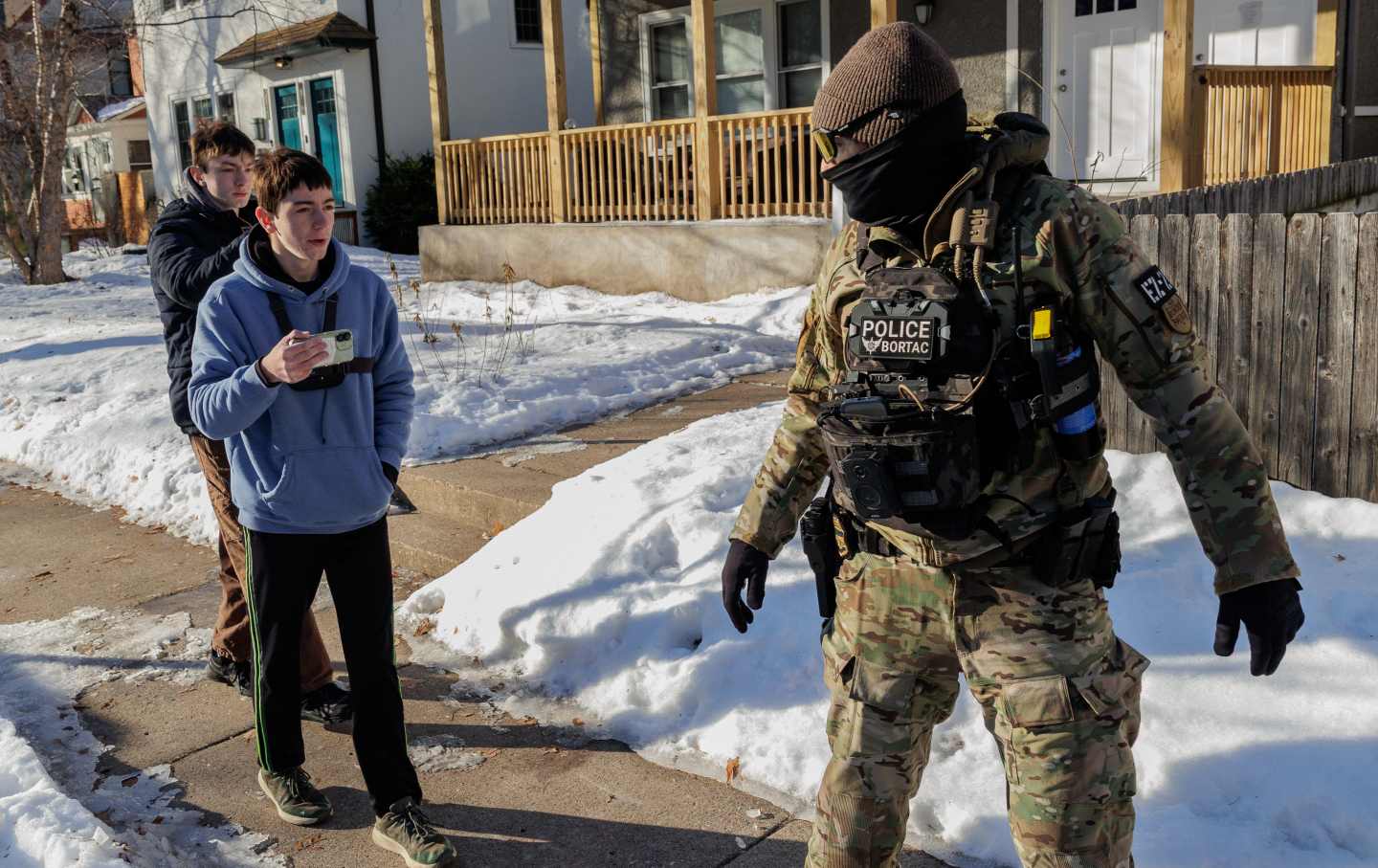
The People vs. ICE The People vs. ICE
Across the country, neighbors are working together to protect one another from Trump’s immigration crackdowns.
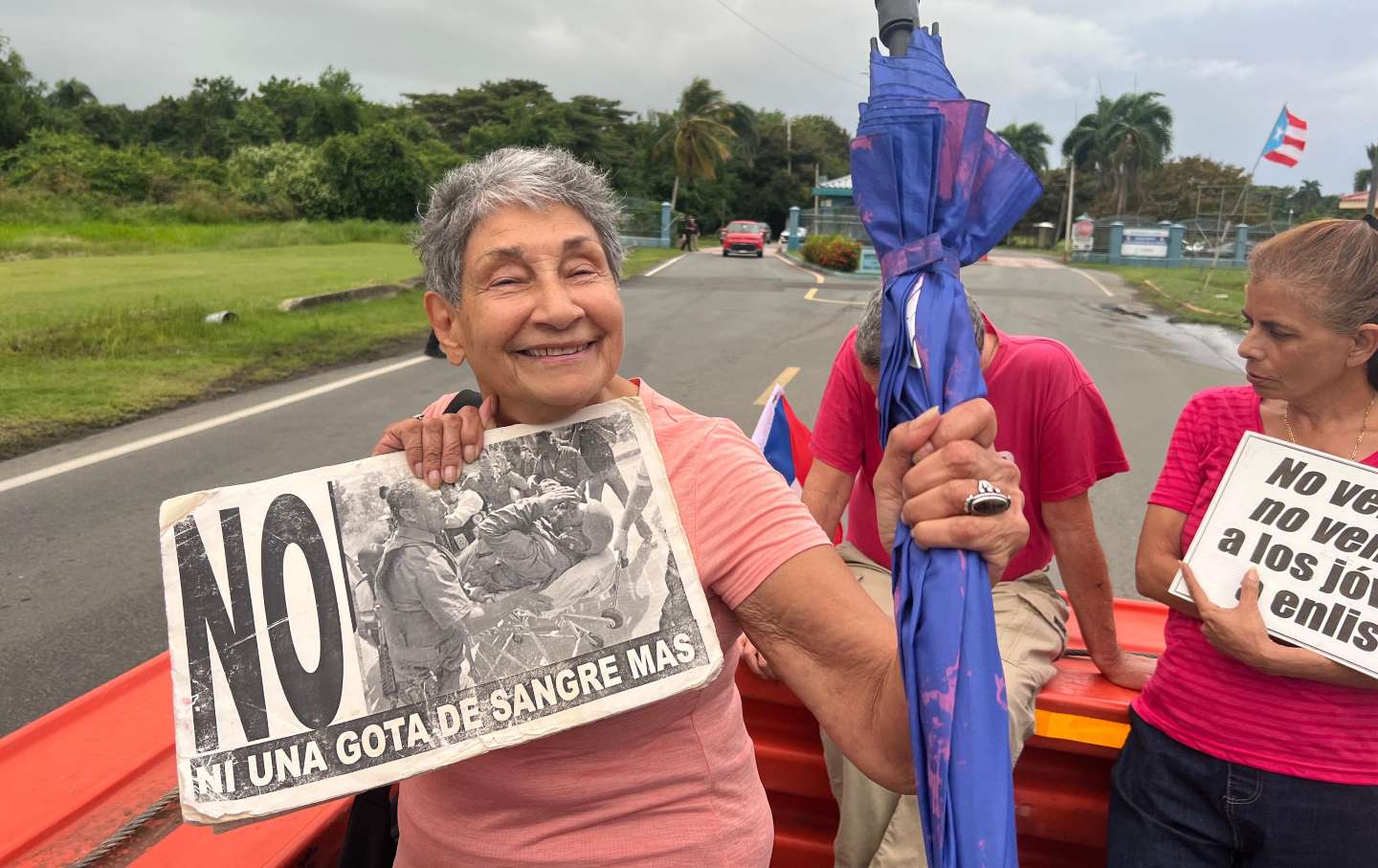
Puerto Rico’s Mothers Against War Turn to Revolutionary Love Puerto Rico’s Mothers Against War Turn to Revolutionary Love
Formed to oppose the Iraq War, Madres Contra La Guerra have now spent decades trying to end Puerto Rico’s role at the center of the US war machine in Latin America.
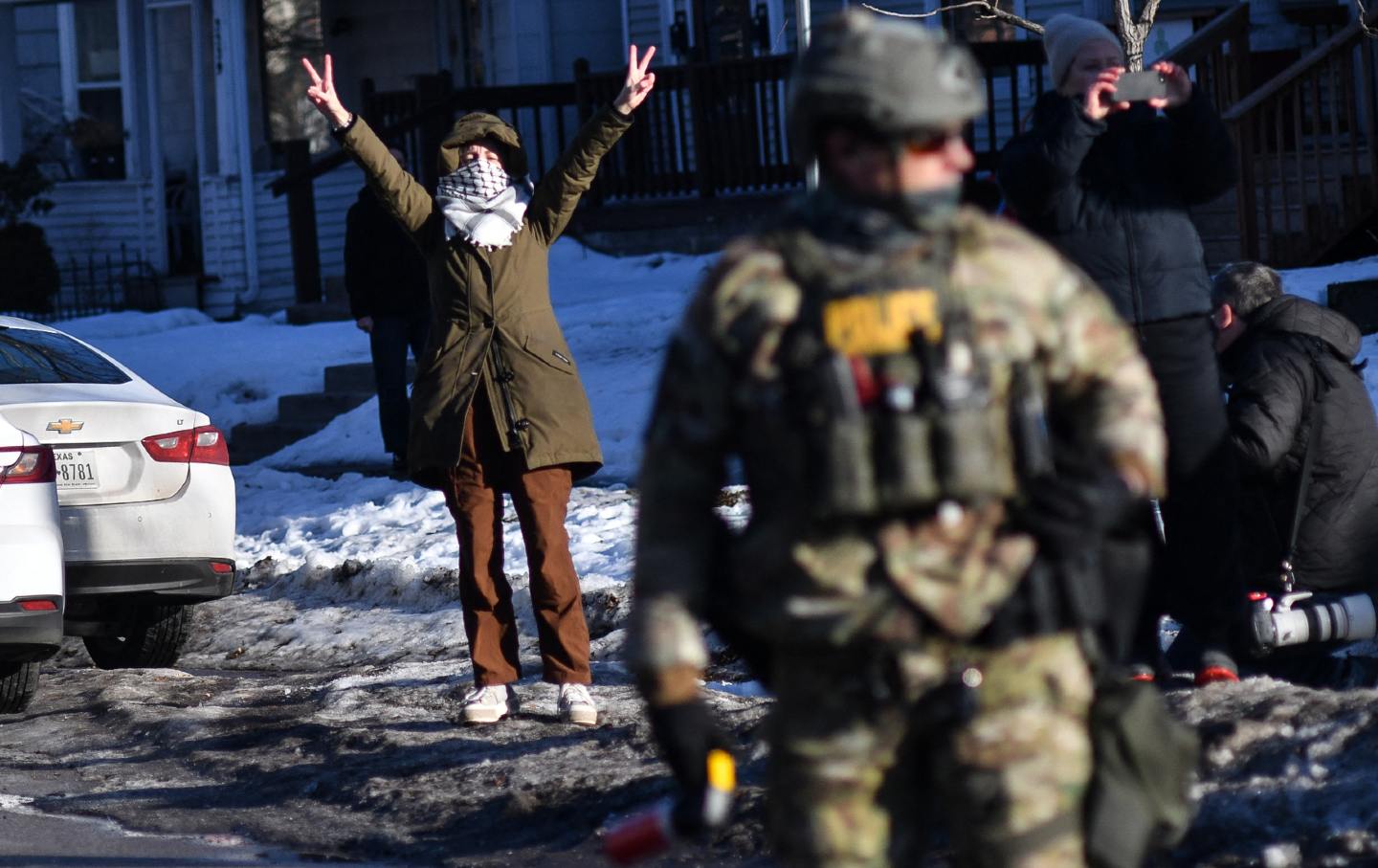
A Minneapolis Teacher Wants the Whole Country in the Streets A Minneapolis Teacher Wants the Whole Country in the Streets
Dan Troccoli, a public middle school teacher, says everyone should start “emulating” Minneapolis’s resistance to ICE and the Trump regime.

Let’s Make Renee Good the Last Person That ICE Kills Let’s Make Renee Good the Last Person That ICE Kills
We can turn the tide against Trump—but only with mass action and courageous leadership.
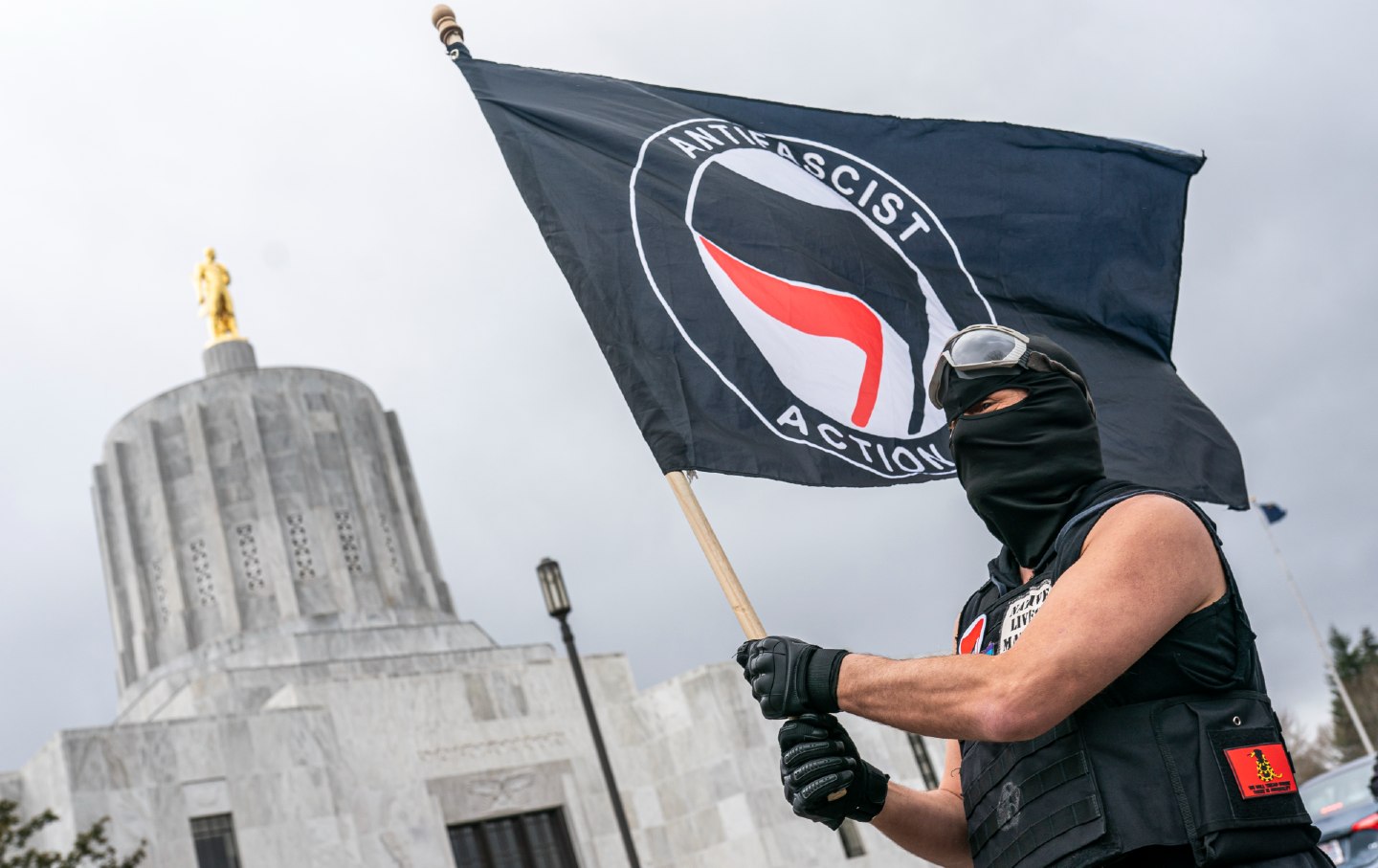
Liberals Think Antifa Isn’t Real. But It Is—and It Knows How to Win. Liberals Think Antifa Isn’t Real. But It Is—and It Knows How to Win.
To protect us all from the violence of the Trump administration, we must defend antifa.
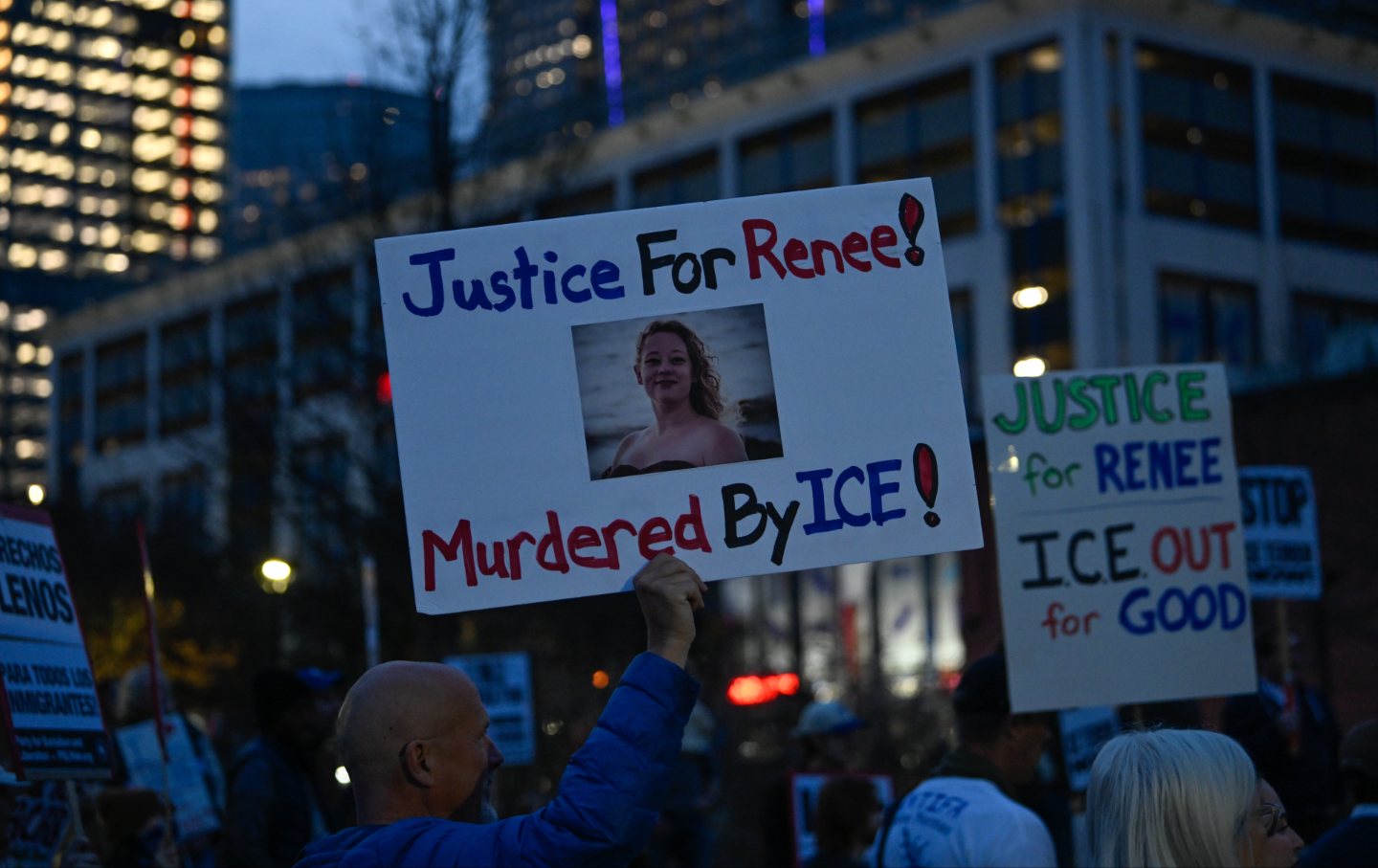
Want to Stop ICE? Go After Its Corporate Collaborators. Want to Stop ICE? Go After Its Corporate Collaborators.
ICE can’t function without help from the private sector. So we should force the private sector to stop helping.


